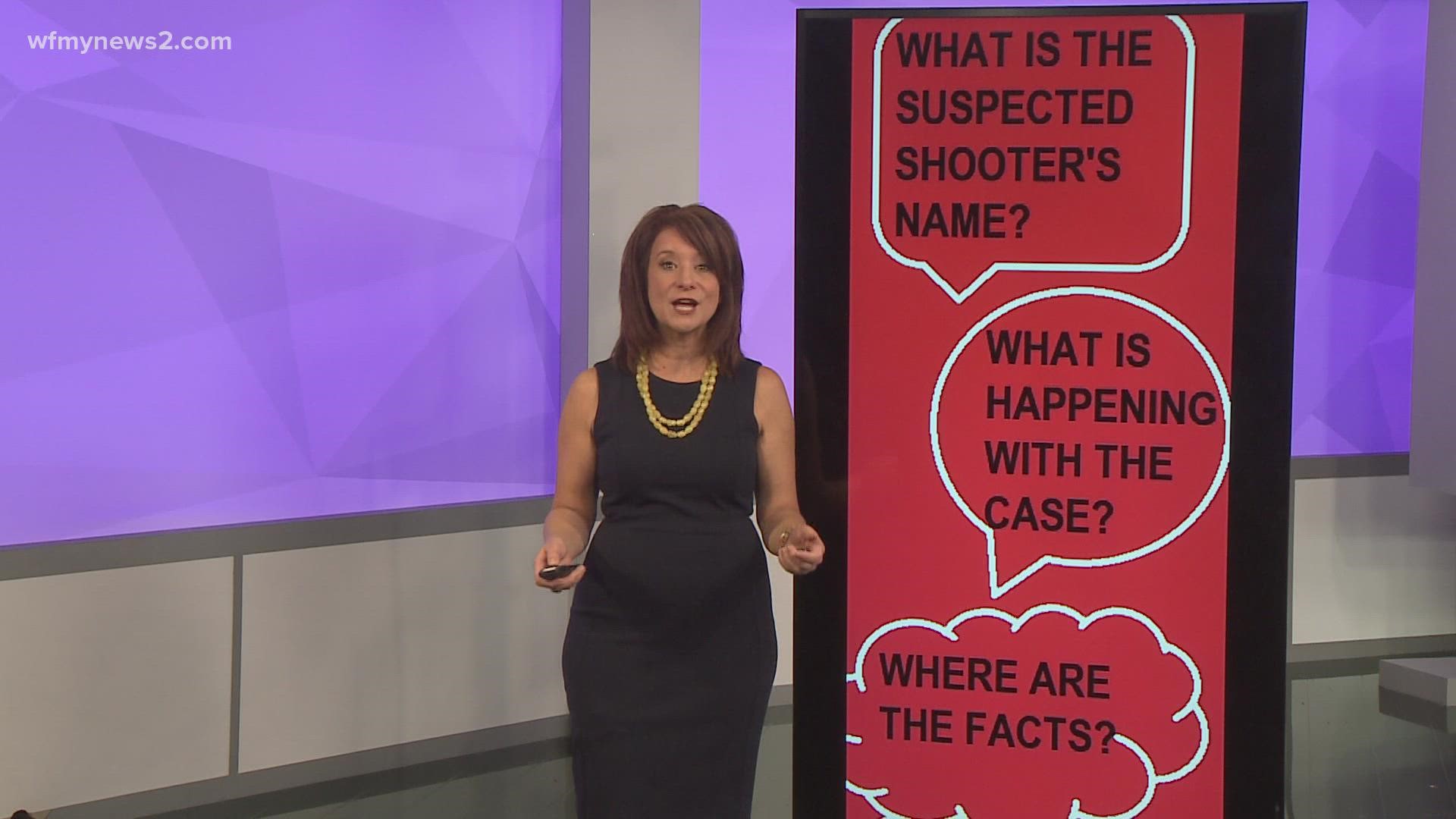GREENSBORO, N.C. — Information about the deadly shooting at Mount Tabor High School is coming in very slowly. In fact, Forsyth County DA Jim O’Neill said that he couldn’t give the facts folks were looking for right now like the suspected shooter's name, the possible motive, or how the suspected shooter and his classmate knew each other.
Fifteen-year-old William Chavis Raynard Miller, Jr. died Wednesday after being shot on campus.
2 Wants To Know asked attorney Jason Keith of Keith Associates, Attorneys in Greensboro to walk us through the court process in this case and give us a timeline of when we could know the suspect’s name.
The suspected shooter is 15 years old. Because of his age, the entire court process begins in Juvenile Court, not district court like an adult’s case would begin.
“You can't even release the juvenile's name. The court protects the juvenile’s identity. The prosecutor, the District Attorney, decides if the juvenile would be tried as an adult and then there's a hearing to have the case move to Superior Court, where adults are tried,” said Keith.
The hearing is called a Transfer Hearing.
“The judge makes a determination if the juvenile is deemed to be an adult and competent to stand trial as an adult,” said Keith.
In the Transfer Hearing, the judge looks at these factors:
(7B-2203)
- The age of the juvenile; (2) The maturity of the juvenile; (3) The intellectual functioning of the juvenile; (4) The prior record of the juvenile; (5) Prior attempts to rehabilitate the juvenile; (6) Facilities or programs available to the court prior to the expiration of the court's jurisdiction under this Subchapter and the likelihood that the juvenile would benefit from treatment or rehabilitative efforts; (7) Whether the alleged offense was committed in an aggressive, violent, premeditated, or willful manner; and (8) The seriousness of the offense and whether the protection of the public requires that the juvenile be prosecuted as an adult.
If a judge transfers the case to Superior Court, which allows the juvenile to be tried as an adult, then the name of the suspect can be revealed. But all of this has to happen before the name of the suspect can be given out.
There's a big difference in penalties for being tried as a juvenile versus an adult.
The max sentence for a juvenile convicted of First Degree Murder is time served up until the age of 21 years old.
The max sentence for a juvenile tried and convicted of First Degree Murder as an adult, is life in prison.
According to North Carolina law, a juvenile cannot be given the death penalty, even if they’re tried as an adult.

